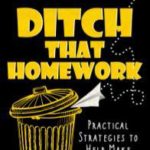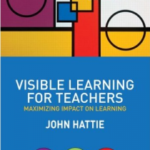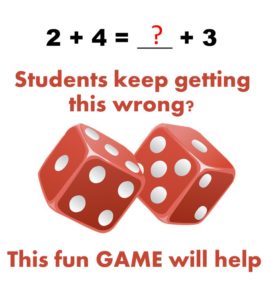
The debate over homework wages on as test scores decline, parent frustration increases, and the ability to cheat eases with new apps and smartphones. We ask the experts, ‘How Much Homework Should Students Have?”
The NEA says that students should have 10 minutes of homework per night, times the grade that they are in (so 3rd graders should have 30 minutes a night, 7th graders should have 70 minutes per night, etc.) http://www.nea.org/tools/16938.htm
Our experts weigh in:
 We want Children to Understand that they are always Learners
We want Children to Understand that they are always Learners
– Maurice J. Elias of Edutopia.org
“We want children to understand that they are always learners. In school, we refer to them as “students” but outside of school, as children, they are still learners. So it makes no sense to even advertise a “no homework” policy in a school. It sends the wrong message.”
“Children should be encouraged to read, write, perform arithmetic, better understand the world around them in terms of civics, science, and the arts, and, of course, develop their people skills — their emotional intelligence. This encouragement should be part of everyday family interactions outside of school, and the school should provide developmental guidance to all parents, in the appropriate languages, to help them do this.”
https://www.edutopia.org/blog/homework-vs-no-homework-wrong-question-maurice-elias
 Homework can be Damaging
Homework can be Damaging
– Shana Mckay of ScaffoldedMath.com
My answer to this question has changed over the years. Now as a mom, the thought of someday fighting with my daughter over homework during the precious few hours I will see her each week makes my heart ache. I also recently read in Jo Boaler’s book Mathematical Mindsets that homework widens the achievement gap. If 30% of a kid’s grade is participation in homework, and that kid has a job to support her family, her grade will never be as high– making it impossible for her to compete for the top colleges. The feeling that “I’m not good enough despite my effort” is also damaging, especially when a kid starts having the choice to take more math or not. So I am really torn. I hope this is an OK answer! It’s something I struggle with. Jo Boaler suggests reflection homework as a way to give homework that is not rote practice. I like this idea.
https://scaffoldedmath.blogspot.com/
 Way Less
Way Less
– Linda Kardamis of Teach4TheHeart.com
More work doesn’t necessitate more learning. It can be overwhelming, especially your to lower skilled students. Less work can lead to greater quality of work, and promote more family time. I recommend assigning less problems, giving time in class to complete, and having students write on their paper how long it took them to complete.
https://teach4theheart.com/why-you-should-give-way-less-homework/
 Some, with Peer Help Time in Class
Some, with Peer Help Time in Class
– Jamie Riggs of MissMathDork.com
After working in a district where homework was a HUGE issue, based on their home circumstances, I started taking a different stance on homework. I still wanted my students to practice, we just started doing it in different ways. I devoted 15 minutes of my class every day to enrichment and remediation. During this 15 minutes of time students had multiple options – 1) get homework help from a peer, 2) help a peer, 3) work on an extension activity alone or with a peer, 4) get help from the teacher at the roundtable, 5) create your own math project to work on. Students were empowered to make their own choice. Because of the culture that I had set in my classroom, students had no problem asking each other for help or being the peer helper. Those who wanted to work alone could, those who wanted help got it, the only rule in the classroom was that everyone had to be working on something mathematical, either on the list or approved by me. It took a little while to get it rolling, but eventually, those 15 minutes of time were my favorite 15 minutes of the day.
 Enough to be Meaningful and to Reinforce the Skill
Enough to be Meaningful and to Reinforce the Skill
– Kathy Ngo Martin of PreAlgebraTeachers.com
I think students should receive enough homework to review the skills being worked on. I don’t believe students should have “busy work.” I can’t say a set amount of minutes or problems, but I will say I usually assign between 10-20 problems per night, and we usually do 5 together in class.
 Ditch that Homework
Ditch that Homework
– Matt Miller and Alice Keeler, authors of “Ditch that Homework”
“Research can’t prove it’s a best practice. It causes family conflict and stress. Plus, it widens the gap between the haves and the have nots.”
http://www.alicekeeler.com/2017/07/27/ditch-homework-make-homework-obsolete/
 Done Right, It Can Be Awesome
Done Right, It Can Be Awesome
– Matt Foster of TeamTomEducation.com
When done right, homework can be a time for shared reading with parents. It can build healthy work habits and inspire students to complete passion projects normally not allowed in a school day.
My take is simple. There are some horrible types of homework. And there some types of homework that are simply awesome.
Here are my top 5 things to avoid and 4 must-haves in homework.
- Never assign homework that requires adult assistance for a student to figure out.
- Never assign homework that surpasses the Rule of 10. Ten minutes multiplied by the grade level equals maximum homework time.
- Never assign homework without choice.
- Never grade homework for accuracy.
- Never assume all students have equal access to parental support and resources.
To gain benefits from homework, here are 4 must-haves.
- Provide choice in homework tasks and topics to tap into a variety of skills and interests.
- Provide homework that builds fluency with already mastered skills or concepts.
- Provide passion projects that students want to do.
- Provide options for recording homework.
 Homework in Primary School has an Effect of Around Zero
Homework in Primary School has an Effect of Around Zero
– John Hattie, author of Visible Learning for Teachers
“Homework in primary school has an effect of around zero. In high school it’s larger. (…) Which is why we need to get it right. Not why we need to get rid of it (…) Five to ten minutes has the same effect of one hour to two hours (…) The best thing you can do is to reinforce something you’ve already learnt.”
https://visible-learning.org/2014/09/john-hattie-interview-bbc-radio-4/
 Work for Home
Work for Home
– John Bennett of johncbennettjr.com
I’d rather think in terms of ‘Work for Home’ (W4H) than homework (HW). It’s not the HW that the teacher assigns for grading that has any value. It’s the W4H that’s aligned with what the student (with teacher input) believes needs needs further work for better learning – not for grading – that’s important. This emphasizes the learning, not the assumed needs from the teacher for grading!!!
Meet the Experts



Learn more at teach4theheart.com, or follow on Facebook @Teach4theHeart


Join at www.PreAlgebraTeachers.com, follow on Facebook, or join her Facebook group







nice blog on maths for sharing those who want to how to learn the basics.